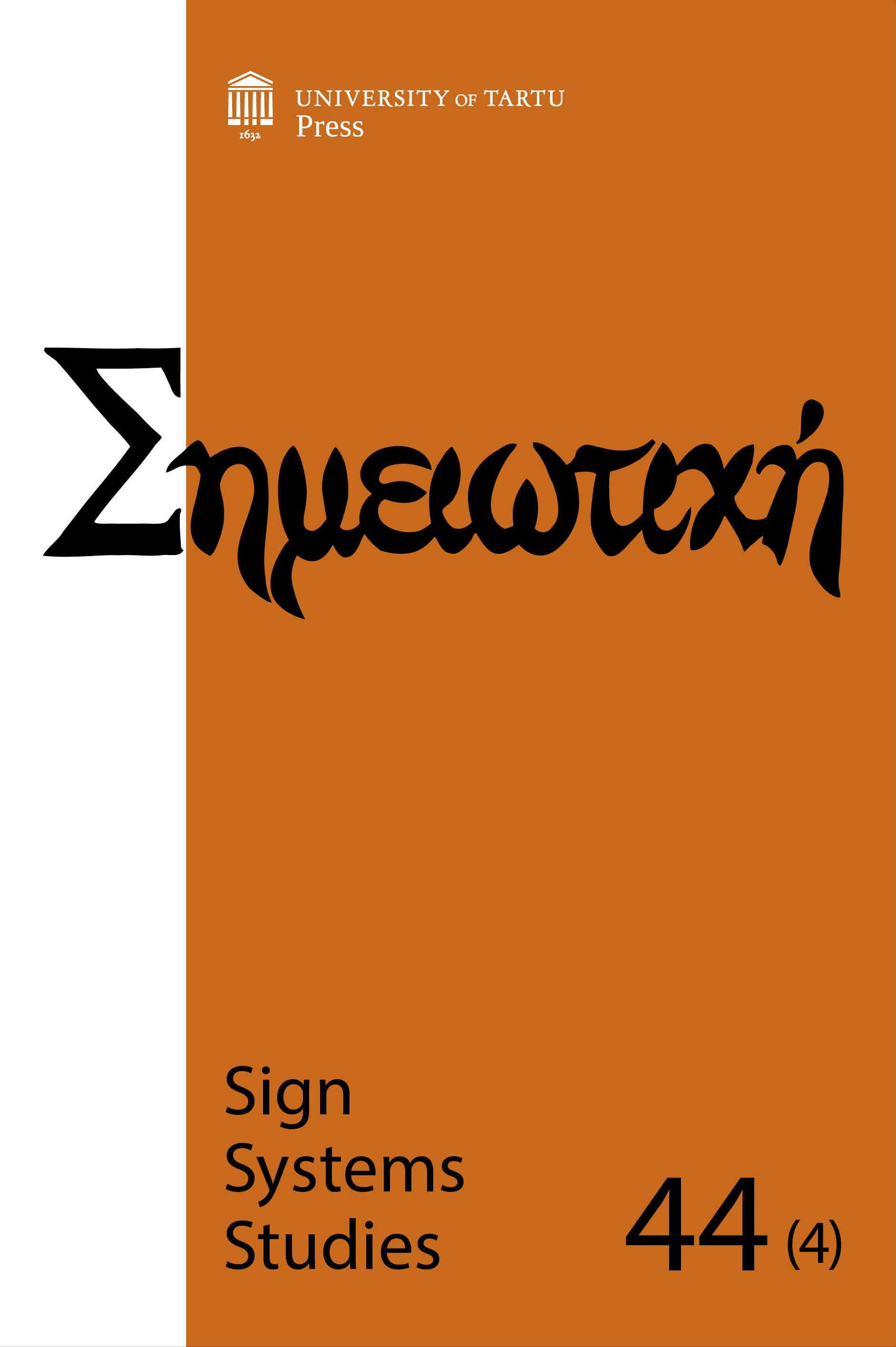Notes on narrative, cognition, and cultural evolution
DOI:
https://doi.org/10.12697/SSS.2016.44.4.04Keywords:
narrative, cognition, complexity, attention, symbolic representation, cultural evolution, development, post-DarwinismAbstract
Drawing on non-Darwinian cultural-evolutionary approaches, the paper develops a broad, non-representational perspective on narrative, necessary to account for the narrative “ubiquity” hypothesis. It considers narrativity as a feature of intelligent behaviour and as a formative principle of symbolic representation (“narrative proclivity”). The narrative representation retains a relationship with the “primary” pre-symbolic narrativity of the basic orientational-interpretive (semiotic) behaviour affected by perceptually salient objects and “fits” in natural environments. The paper distinguishes between implicit narrativity (as the basic form of perceptual-cognitive mapping) of intelligent behaviour or non-narrative media, and the “narrative” as a symbolic representation. Human perceptual-attentional routines are enhanced by symbolic representations: due to its attention-monitoring and information-gathering function, narrative serves as a cognitive-exploratory tool facilitating cultural dynamics. The rise of new media and mass communication on the Web has thrown the ability of narrative to shape the public sphere through the ongoing process of negotiated sensemaking and interpretation in a particularly sharp relief.Downloads
Download data is not yet available.
Downloads
Published
2016-12-31
How to Cite
Grishakova, M., & Sorokin, S. (2016). Notes on narrative, cognition, and cultural evolution. Sign Systems Studies, 44(4), 542–561. https://doi.org/10.12697/SSS.2016.44.4.04
Issue
Section
Articles


